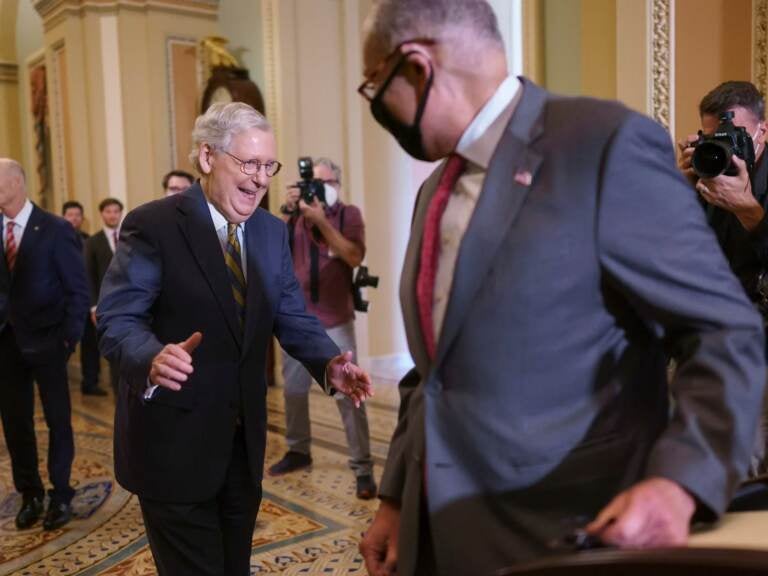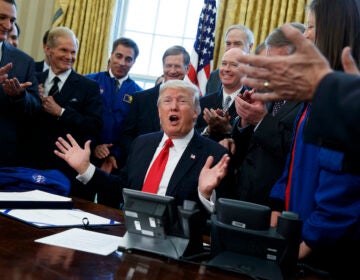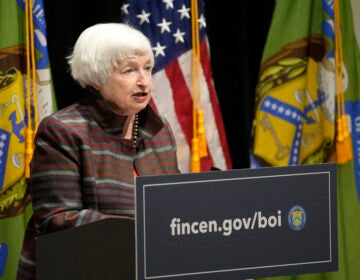After Senate leaders broker a deal, the House takes a first step to avoid default

In this Aug. 3, 2021, photo, Senate Democratic Leader Chuck Schumer, of New York, and Senate Republican Leader Mitch McConnell, of Kentucky, left rear, smile when they both arrived at the same time to speak to reporters about progress on infrastructure bill, at the Capitol in Washington. (AP Photo/J. Scott Applewhite)
The House voted 222-212 Tuesday night to approve a Senate-hatched plan that could allow Congress to avoid a federal default and tie up other legislative loose ends.
Senate Majority Leader Chuck Schumer, D-N.Y., and Minority Leader Mitch McConnell, R-Ky., agreed on a proposal that would allow the Senate to increase the federal borrowing limit without the threat of a Republican filibuster.
The move is an attempt to end a months-long standoff as Republicans have refused to join Democrats in voting to increase the debt limit.
“I think this [plan] is in the best interest of the country by avoiding default,” McConnell told reporters Tuesday. “I also think it is in the best interest of Republicans.”
The approach combines a one-time change to Senate rules with a measure to prevent scheduled cuts to Medicare payments.
But House passage of this proposal is just the first step in a lengthy process. If the one-time change passes the Senate, the bill still needs to be signed into law by the president. Only then would the opportunity to increase the federal borrowing limit with a simple majority vote in the Senate kick off.
The one-off agreement would allow Senate Democrats to avoid default, assuming the party is unified on the amount of borrowing power they’re willing to allow. Democrats say their goal is to choose a figure that will resolve the debt limit until after the midterm elections in November 2022.
Treasury Secretary Janet Yellen notified Congress earlier this month that lawmakers have until Dec. 15 to increase the nation’s borrowing limit or risk defaulting on the country’s bills.
9(MDAzMzI1ODY3MDEyMzkzOTE3NjIxNDg3MQ001))




